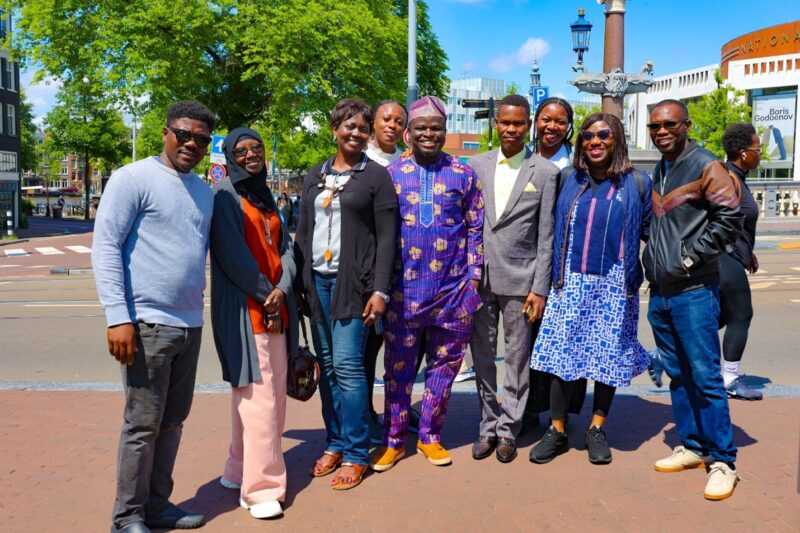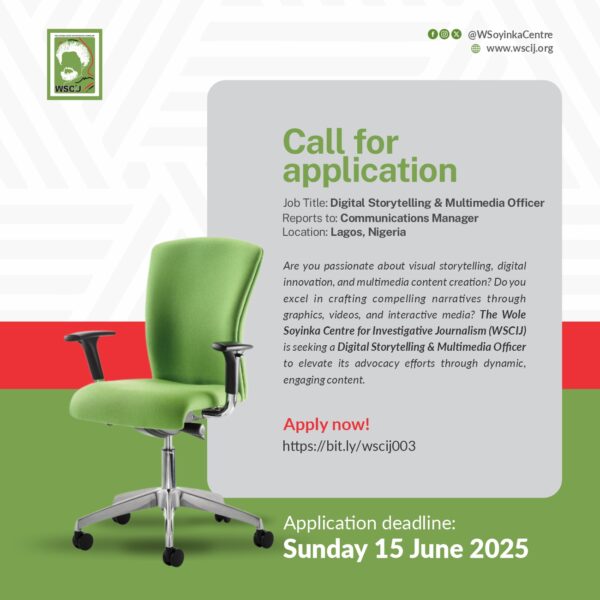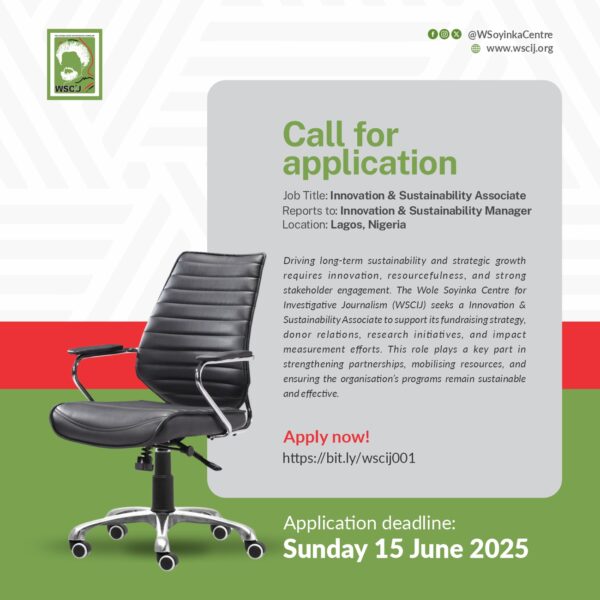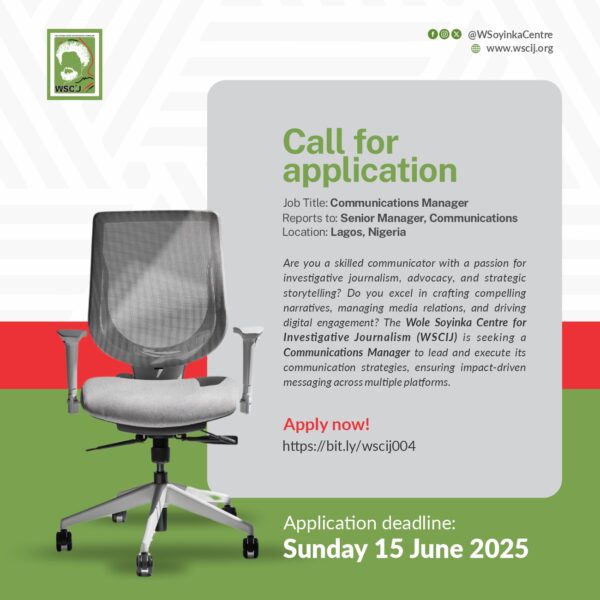Media organisations have been urged to embrace clear career paths, supportive work cultures, fair structures, competitive pay, and the establishment of independent human resource teams to attract and retain talent in the media industry. This call was made by panellists at the May edition of the Journalism & Society Conversations hosted by the Wole Soyinka Centre for Investigative Journalism (WSCIJ) on 13 May 2025.
The discussion themed, ‘Are newsroom struggling to retain talent?” brought together voices in the industry including, Lekan Otufodunrin, Executive Director, Media Career Development Network; Victoria Bamas, Editor, International Centre for Investigative Reporting; Simon Sunday, Assistant Manager, New Media, Nigerian Electricity Regulatory Commission and Amaka Okoye, West Africa Correspondent DW News. Jemilat Nasiru, Multimedia Journalist, TheCable, moderated the conversation.
In her opening remarks, Motunrayo Alaka, Executive Director/CEO, Wole Soyinka Centre for Investigative Journalism, emphasised that investigative reporting demands ethical, curious, disciplined, and detail-oriented journalists who are able to perform their role of holding power to account thereby sustaining democracy. Alaka raised concerns over the growing pressure on investigative journalists, many of whom are forced to juggle multiple roles due to economic challenges. She urged newsroom managers, media owners, to evolve and become more dynamic in order to attract and retain such talent.
Lending his voice to the conversation, Otufodunrin noted that newsrooms are not just struggling to retain talent, but also to attract new ones who can meet the demands of the industry. “One mistake we make is saying the newsroom is not civil service, people should know what they can become. I have seen media houses where people stay on a role for 10, 15 years”. Otufodunrin added that efforts of journalists should be recognised and rewarded, and that newsrooms must be reflection of the democratic society they advocate. “Editors should be managers of human resources and not just news.” He called for equity and profit-sharing models to boost the morale of media professionals so that newsrooms can retain their best hands.
Beyond salaries, a major issue in local newsrooms is the lack of proper structure and job security. Okoye noted that journalists in Nigerian newsrooms are often overworked and underpaid. She also lamented how journalists are being micro-managed, unlike their counterparts in foreign media who are trusted to deliver on their tasks independently. She urged Nigeria media to embrace freelancing model, noting that it offers flexibility and security when done right.
Another panellist, Sunday identified politics in the newsroom as a challenge for talent retention. He said journalists are discouraged when there is bias in assessment, affecting their promotion. “Newsrooms should invest in having an independent human resource team to avoid the bias in the newsroom management.”
Also speaking during the conversation, Bamas called on media organisations to rethink how they hire and support their staff. She urged them to offer competitive pay, clear paths for career growth and better welfare packages. She also stressed the importance of protecting journalists who do accountability reporting, regularly assessing their work, and investing in continuous training to keep talent within the newsroom.
The Journalism & Society Conversations by WSCIJ brings together stakeholders to discuss pressing issues that affect the media and the society as well as the vital role of investigative journalism in holding the government accountable and contributing to nation-building.
Signed,
WSCIJ Team








